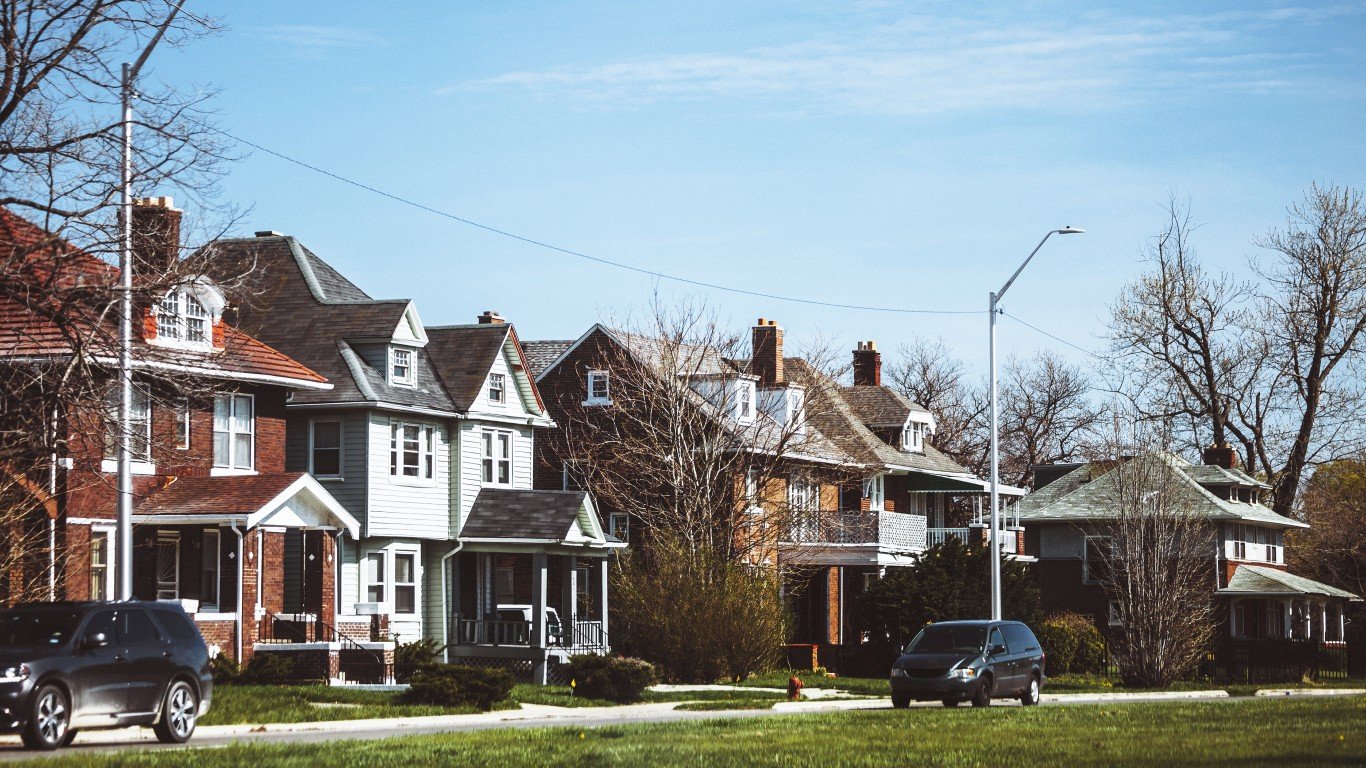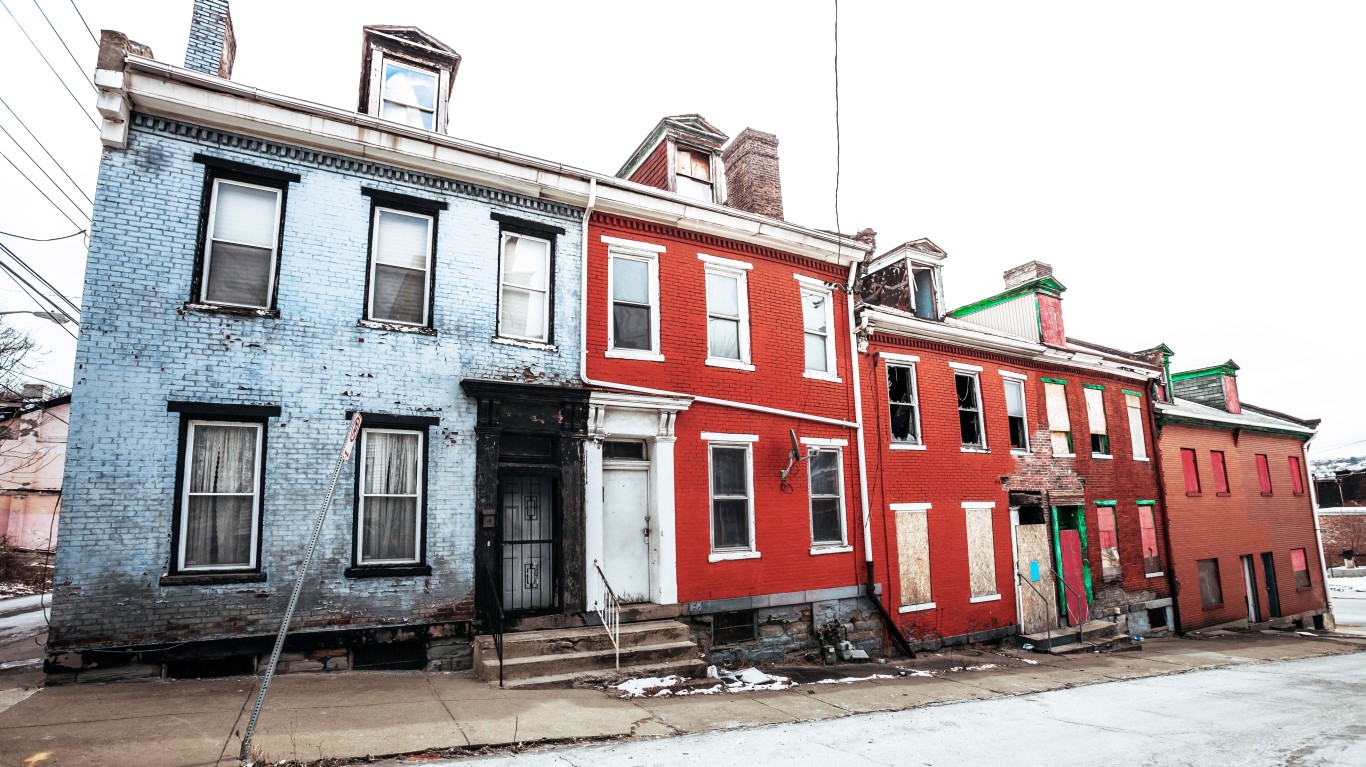 Today’s news on GDP shows the double dip has arrived–an expansion of only 1.3% and consumer spending up .1% in the second quarter. Astonishingly low by any account.. The debt ceiling trouble and lack of a longer term resolution to the deficit will make it worse.
Today’s news on GDP shows the double dip has arrived–an expansion of only 1.3% and consumer spending up .1% in the second quarter. Astonishingly low by any account.. The debt ceiling trouble and lack of a longer term resolution to the deficit will make it worse.
The US has entered a second recession. It may not be as bad as the first. Economists say that the Great Recession began in December 2007 and lasted until July 2009. That may be the way that the economy was seen through the eyes of experts, but many Americans do not believe that the 2008-2009 downturn ever ended. A Gallup poll released in April found that 29% of those queried thought the economy was in a “depression” and 26% said that the original recession had persisted into 2011.
It is any wonder that many Americans believe that the economic downturn is still in progress? Home prices have fallen to 2002 levels. Values have dropped nearly 50% in parts of Florida, California, Nevada, and Arizona. Property values are also down that much in parts of troubled big cities like Detroit. Estimates are that as many as 11 million homes have underwater mortgages. Banks have inventories of as many as 2 million foreclosed homes which have not even been released to the market. Home prices could fall another 10% if current trends persist.
Perhaps the most powerful argument that the recession never ended or that a new one has begun is the persistence of unemployment. Fourteen million people are out of work. A third of those have been jobless for more than a year. May employment data showed the jobless rate rose unexpectedly and that the economy added only 58,000 jobs. Experts believe that the unemployment rate will not improve significantly until the monthly gain in jobs is consistently 300,000 jobs or more. And, at that rate the gains would have to go one for more than two years to bring the economy back to what is traditionally considered a reasonable unemployment figure.
There are several signs that a recession is firmly in place again and that the downturn could last for several quarters. Most are already easy for the average American to see.
1. Inflation
There is almost nothing that damages consumer confidence as badly as a rapid rise in prices. Starbucks recently increased the price of a bag of coffee by 17% because wholesale prices have risen by almost twice that rate in the last year. Cotton prices nearly doubled in 2010 but has fallen this year. But, apparel is made months in advance of when they reach store shelves. Summer clothing prices are up as much as 20%. That may change in the fall, but for the time being, the consumer’s ability to buy even the most basic clothing has been undermined. Consumers today pay more for sugar, meat, and corn-based products as well.
2. Investments have begun to yield less
Part of the recovery was driven by the stock market surge which began when the DJIA bottomed below 7,000 in March 2009. The index has risen above 12,000 and the prices of many stocks have doubled from their lows. As result, American household nest eggs that were decimated by the collapse of the market have rebounded and enabled people to splurge on themselves. However, the market has stumbled in the last quarter. The DJIA is up only 1% during the last three months and the S&P 500 is down slightly. Americans, though, have have few other places to put their money.. Ten-year Treasuries yield about 3%. Gold was a good investment over the last year, but it has begun to falter as well. The market may not be a friend to investors for quite some time.
3. The auto industry
The auto industry has staged an impressive comeback, although its profitability is based as much on the layoffs it has made over the last five years as generating new sales. GM and Chrysler have emerged from bankruptcy. Year-over-year monthly sales improved late last year and through April. May sales stalled. GM’s revenue dropped by 1% compared to May of 2010. Ford’s sales were down about as much. There are many reasons for this trend including high gas prices and the constrained manufacturing capacity of the Japanese automakers because of the earthquake. Consumers also may be deferring big purchases because they are worried about their economic prospects. Slow car sales are not just a sign of lagging consumer confidence. They also may be a harbinger of tougher times ahead. These companies shed several hundreds thousand jobs before and during the last recession. Car firms have only just begun to hire again, but that trend will die with a plateau in sales.
4. Oil prices
Oil prices are supposed to drop as the economy slows as they did in 2008 and early 2009 when crude fell from over $140 to under $50. That drop at least allowed consumers and businesses like airlines to more easily afford fuel. Recently, crude has moved back above $100 and appears to be stuck there regardless of the economic situation. American budgets have been hurt by the rising cost of gas. Americans of more modest means have been particularly affected. A slowdown in driving usually also leads to a decline in the retail sector as consumers reduce unnecessary travel to stores. The impact on other businesses is just as great. Airlines suffer and so do firms which rely on petrochemicals. OPEC, for now, has signaled it will not increase production.
5. The federal budget
The federal budget deficit has decimated any chance for another economic stimulus package which many prominent economists like Nobel Prize winner Paul Krugman say is essential to create a full recovery. His theory has become more of an issue as GDP growth slows to a rate of 2%. The first $787 billion Obama stimulus package may have saved some American jobs, but it is long over and did not work if a drop in unemployment and a sharp improvement in GDP were its primary goals. The deficit has caused a call for severe austerity measures which have already become part of the economics policies of countries from Greece to the UK to Japan. Job cuts in the U.S. will not be restricted to the federal level. A recent UBS Investment Research analysis predicted that state and local governments will cut 450,000 jobs this year and next. That process is already well underway. States like California and New York currently run massive deficits and the rates they must pay on bonds has risen accordingly. Newspaper headlines almost daily report on battles between state unions and governors over employment and benefits.
6. China Economy Slows
A slowdown in the Chinese economy is usually seen as a cause of global commodity price inflation, but the effects cut two ways. China’s appetite for energy and raw materials may fall. But, the demand for goods and services by its very large and growing middle class drops as well. Chinese purchaser manufacturing and export numbers have fallen as the central government has tightened the ability to borrow money. US exports to China are key to the health of many American businesses. John Frisbie, the president of The US-China Business Council, recently said, “Over the last decade we have seen exports to China rise from $16.2 billion to $91.9 billion – a 468 percent increase.” As that rate slows, it has a profound effect on tens of thousands of American companies and their employees. US firms with large operations in China are also effected. GM is one of the two largest car firms in China along with VW. Large US corporations like Wal-mart and Yum! Brands rely significantly on China to boost global sales. Without vibrant consumer spending in China, American companies will suffer.
7. Unemployment
Unemployment creates two immediate problems. People without jobs drastically curtail their spending, which will ultimately affect GDP growth. The second is the need for tens of billions of dollars every year in government aid to keep the unemployed from becoming destitute. That support has increased deficits and the domino effect is that cash-strapped governments need to make more spending cuts. It may be the biggest challenge the economy faces. Unemployment has worsened because people over 65 to continue to work because the values of their homes–which they once counted on as the financial basis of their retirements–have dropped so sharply. Older Americans also fear that cuts in Medicare and perhaps Social Security are inevitable which increases the cost of their golden years. The jobs that older Americans have taken are often ones that younger Americans might have. People in their 20s must accept low wages to enter the workforce. This has delayed their prime consuming years well into their 30s which will damage GDP recovery now and for another decade. The worst of the unemployment problem is the roughly 5 million Americans who have been unemployed for over a year. Their unemployment benefits have run out in many cases. The burden of their care falls to their families, friends, community organizations, and non-profits. A family which has to support an unemployed person may be a family which cannot spend beyond its basic needs. To the extent that the federal or state governments can support the unemployed, the cost to run support programs increases.
8. Debt Ceiling
The United States debt ceiling,currently at $14.294 trillion, will probably be raised before the government has to cut back essential services on August 2. It might seem that the economic and employment effects of the debt cap are the same as the deficit, but they are actually more insidious and longer term. The first by-product of debt reduction, or at least a slowdown in its growth, is a combination of higher taxes and a lower level of government services. Higher taxes usually slow economic improvements, particularly when they are not couple with stimulus measures. A number of economists have pointed out the expense reduction alone will not sharply improve the United States balance sheet. The increase in Medicare and Social Securities costs, brought on by an aging population, are also likely to trigger a need for higher taxes. Tax increases could keep the economic growth of the US on hold for years. The taxation of companies decreases and often eliminates profits, particularly during an already troubled economic period. Profits which disappear usually cause cuts in purchasing and jobs. Taxes on wages and inheritance undermines consumer spending. And, a growth in national debt from already all-time highs will increase the borrowing costs of the US. That, in turn, drives up interest rates for everything from mortgages to credit cards.
9. Access To Credit
The lack of access to credit has hurt the economic activity or both individuals and small businesses. Many very large companies can borrow money at rates as low as 2% because of their strong cash flows and balance sheets. Banks have been much less willing to loan money to companies with under 100 workers because these firms often rely on a few customers for revenue and usually have very little money on hand. Early in June, the House Small Business Committee held hearings and among its findings were that concerns about risk and a slow economy has made financial institutions reluctant to lend to small businesses, the main driver of economic growth. Committee Chairman Sam Graves (R-MO) said Congress will need to “bridge the gap” between the two sides. There is no plan to accomplish that. Individual borrowers find themselves in a similar position. The cost of credit cards debt is still above 20% in many cases although the Federal Reserve loans money to large financial firms for interest rates close to zero. Potential home buyers, who might help break the gridlock of slow house sales, often find that banks want down payments as high as 20%. The median down payment in nine major U.S. cities rose to 22% last year on properties purchased through conventional mortgages, according to an analysis done for The Wall Street Journal by real-estate portal Zillow.com. That percentage doubled in three years and represents the highest median down payment since the data were first tracked in 1997. Home which are not sold often put such great burdens on owners that they are barely consumers of the goods and services that drive GDP. Home builders have continued to struggle. Construction jobs, which were a huge amount of the employment base in states like Florida, have not returned.
10. Housing
Housing is considered by many economists to be the single largest drag on the American economy, and the housing market has gotten much worse in the last two months. A report from The New York Federal Reserve published early this year said that “When home prices began to fall in 2007, owners’ equity in household real estate began to fall rapidly from almost $13.5 trillion in 1Q 2006 to a little under $5.3 trillion in 1Q 2009, a decline in total home equity of over 60%.” Real estate research firm Zillow reported on more recent developments. “Negative equity in the first quarter reached new highs with 28.4 percent of all single-family homes with mortgages underwater, from 27 percent in Q4.” Many homeowners who want to sell their homes cannot do so because they cannot afford to pay their banks at closing. Whether for good or ill, the American home was the primary source for money used for retirements, college educations, and the purchases of many expensive items such as cars. Economists point out the this leverage helped contribute to the credit crisis as people could not cover the costs of home equity loans as real estate values collapsed. This may be true, but the drop in value happened so quickly that the balance sheets of millions of Americans were destroyed. Their ability to consume was severely damaged, further harming GDP. High mortgage payments bankrupted or nearly bankrupted people who have lost jobs or have found that their incomes had stagnated. The building industry became a shambles overnight. And, whatever the effects have been over the last three years, they are getting progressively worse as home values drop to decade lows. There is no relief in sight because potential buyers worry that price erosion has not ended.
Douglas A. McIntyre
Sponsored: Find a Qualified Financial Advisor
Finding a qualified financial advisor doesn’t have to be hard. SmartAsset’s free tool matches you with up to 3 fiduciary financial advisors in your area in 5 minutes. Each advisor has been vetted by SmartAsset and is held to a fiduciary standard to act in your best interests. If you’re ready to be matched with local advisors that can help you achieve your financial goals, get started now.
Thank you for reading! Have some feedback for us?
Contact the 24/7 Wall St. editorial team.



